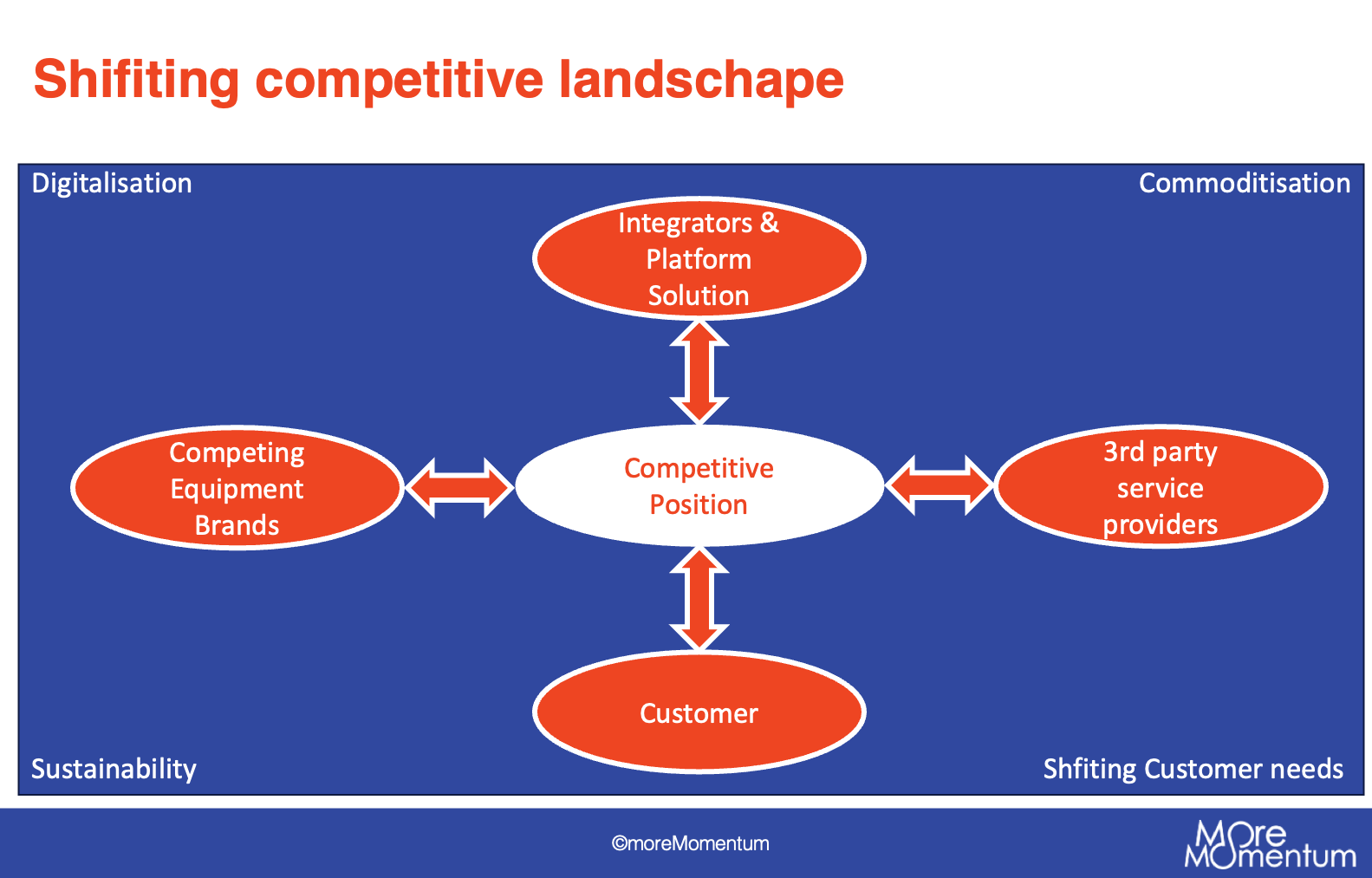What Service Transformation Involves
Turning service into a growth engine is more than adding new offerings; it’s a fundamental shift in how the organisation operates, learns, and creates value.
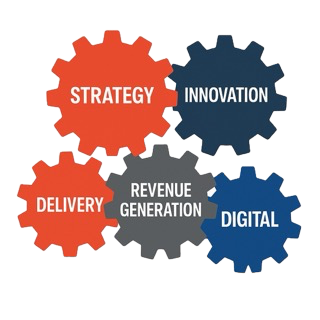
It’s Bigger Than Expanding a Portfolio
Service transformation is not just about adding maintenance contracts, software, or outcome-based services.
It changes how the business:
- Creates value and differentiates in the market.
- Aligns functions around shared goals.
- Builds capabilities to adapt faster than competitors.
It affects strategy, innovation, revenue generation, delivery, and digital capabilities all at once.
This means transformation touches every team, every process, and every decision in the service organisation—and beyond.
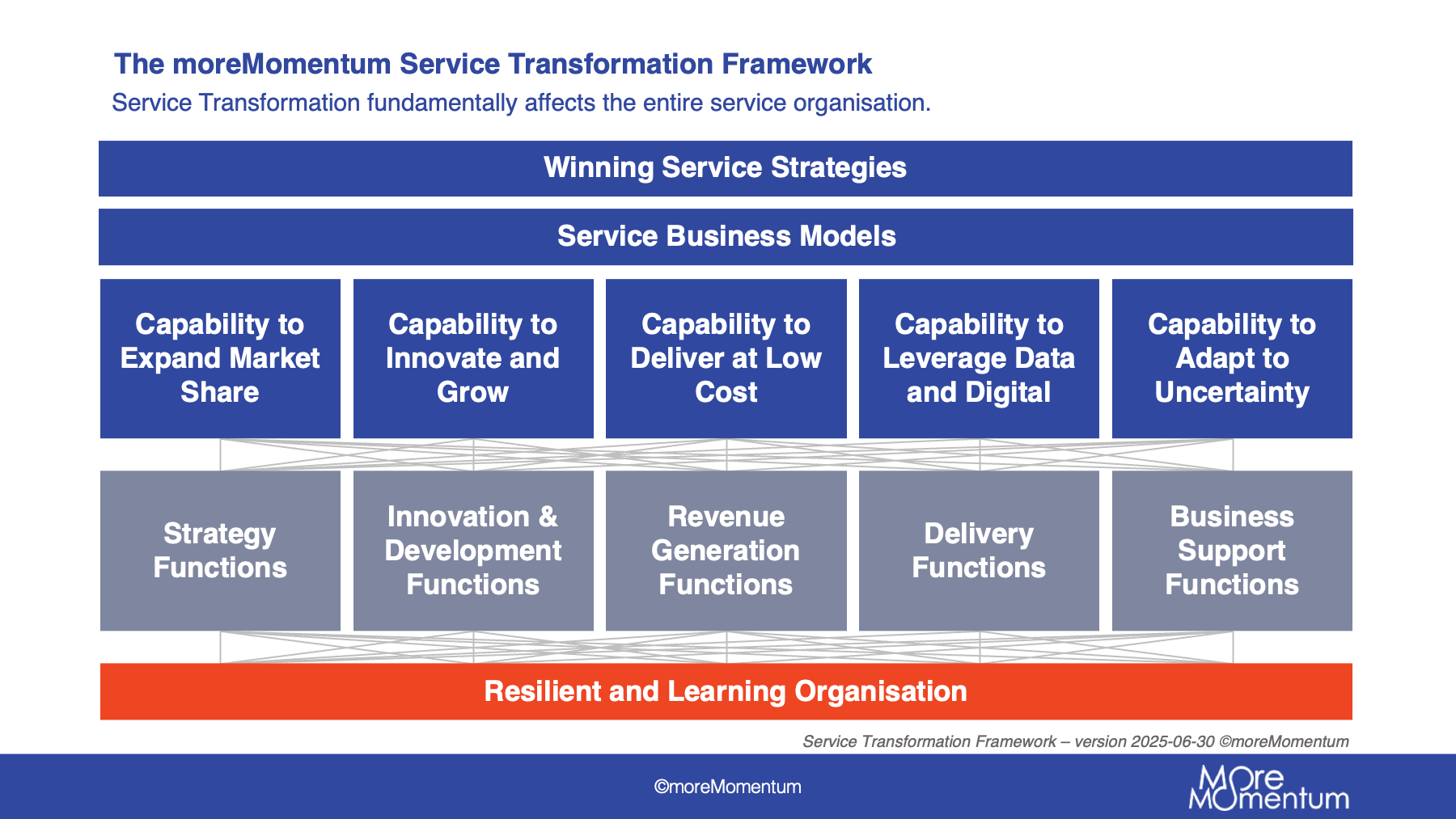
Building the Capabilities to Compete and Grow
Manufacturers must develop five core capabilities to succeed in service transformation:
- Deliver at low cost – ensuring efficiency and scalability.
- Expand market share – reaching new customers and segments.
- Leverage data and digital – turning information into value.
- Adapt to uncertainty – staying resilient in volatile markets.
- Innovate and grow – creating new service models and revenue streams.
All of these rely on a Resilient and Learning Organisation as the foundation.
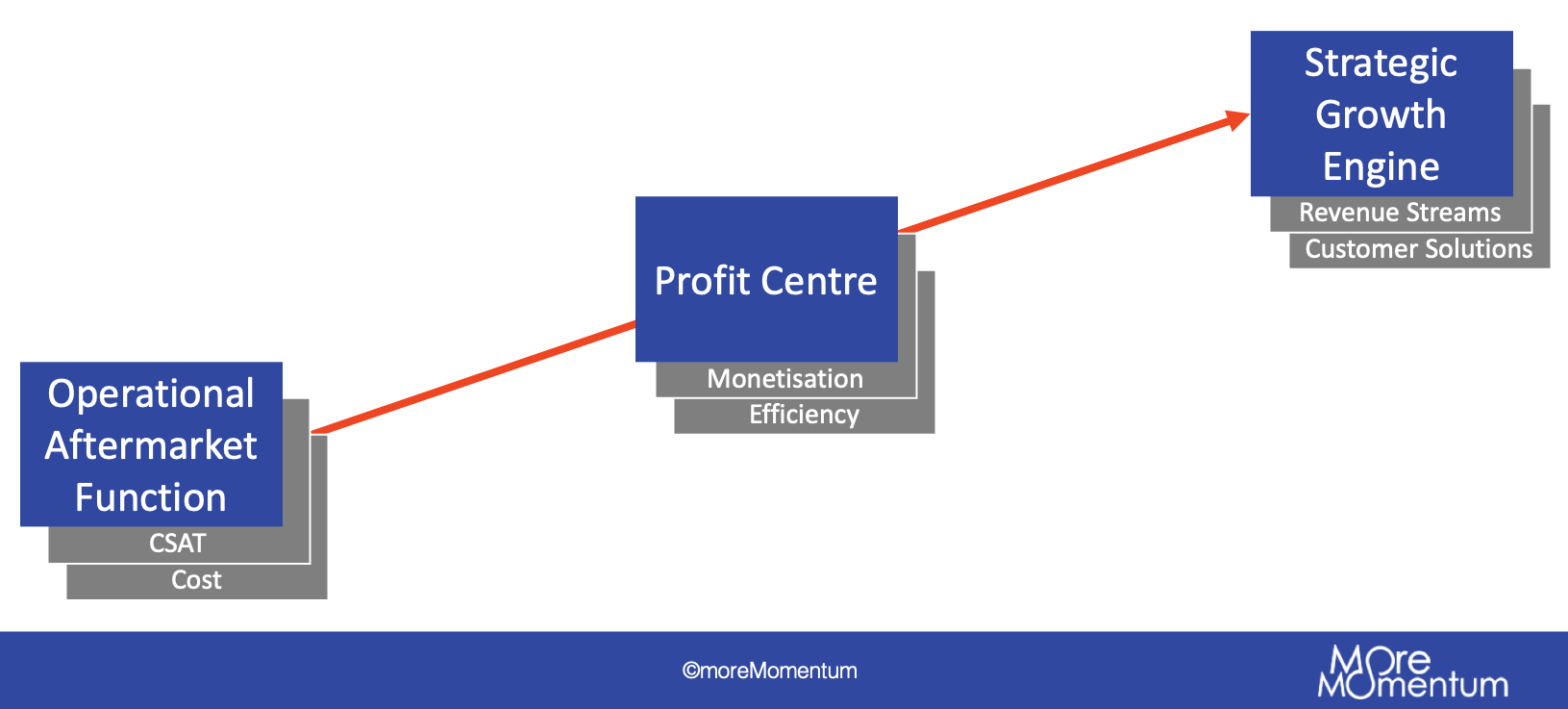
Every Function Plays a Role in the Journey
Service transformation impacts all functions within the service organisation, including:
- Strategy functions – defining winning service strategies.
- Innovation & development – service and digital product development, service product management.
- Revenue generation – service marketing, sales, and customer success.
- Delivery functions – predictive and prescriptive maintenance, remote and educational services, consultancy, knowledge and data services, managed services.
- Business support functions – change management, knowledge management, skills development, mindset and culture.
No single team can transform in isolation. Progress comes from aligning all these functions toward a shared direction.

Transformation Requires Momentum Over Time
Service transformation doesn’t happen overnight. It’s a continuous journey of learning, alignment, and capability building.
Manufacturers that succeed:
- Pace their transformation with structured learning and strategic foresight.
- Build shared language and direction across teams.
- Continuously adapt offerings and business models as markets evolve.
This is why knowledge and organisational learning are at the heart of service transformation—and why so many initiatives stall.
Read why service transformation stalls in many organisations
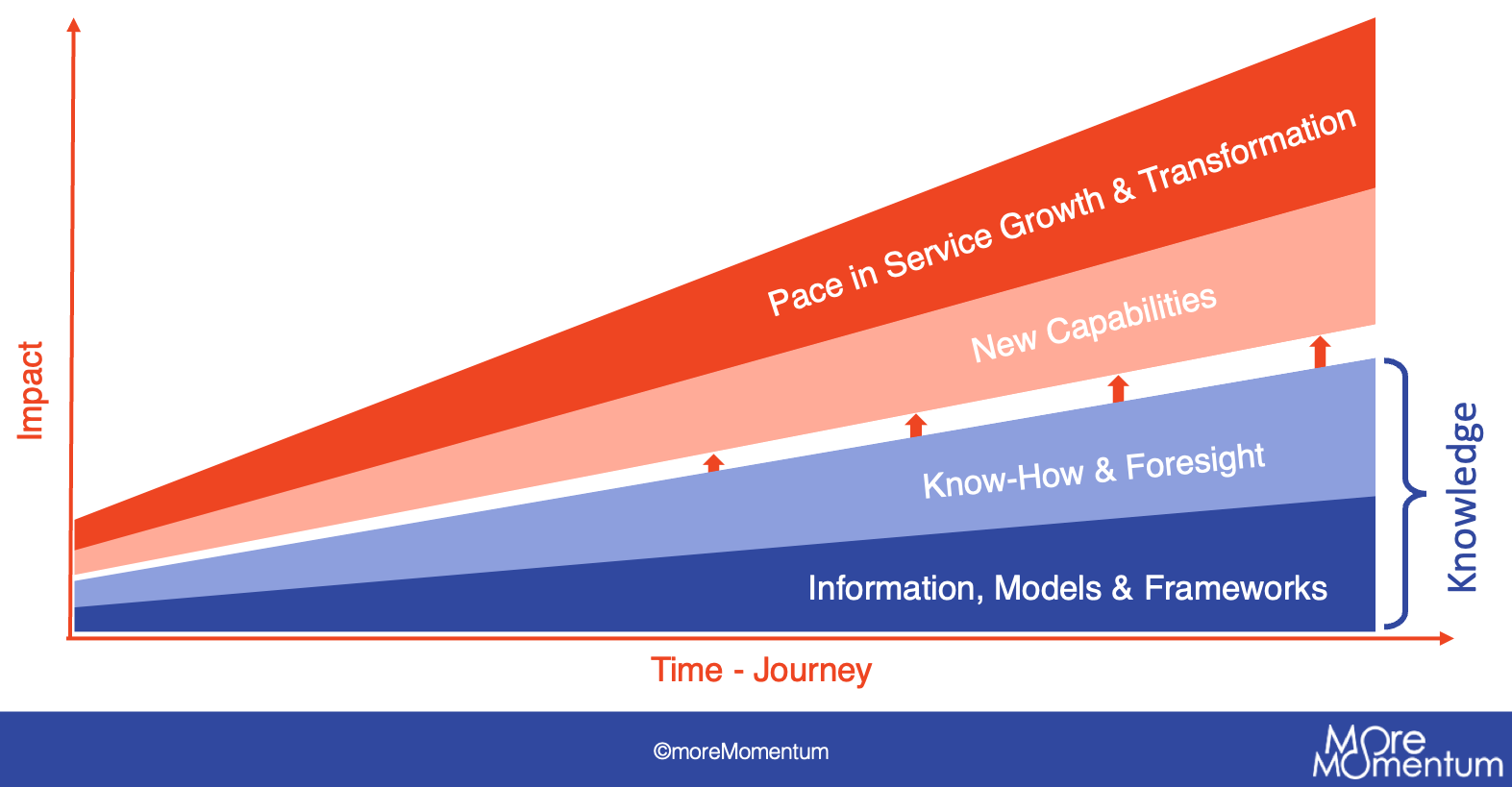
Service Transformation Is About Changing How You Compete
It’s not just about what services you offer—it’s about how you align your organisation to learn, adapt, and grow faster than the competition.
Those who approach it as a systemic journey build stronger, more resilient service businesses.
Manufacturers that succeed:
- Pace their transformation with structured learning and strategic foresight.
- Build shared language and direction across teams.
- Continuously adapt offerings and business models as markets evolve.
